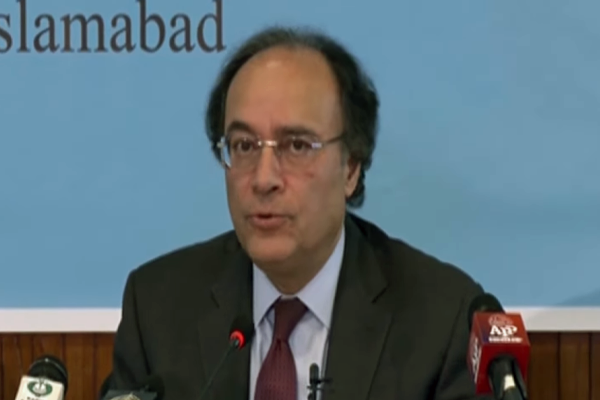PTBP Web Desk
Federal Minister for Finance and Revenue, Muhammad Aurangzeb, announced on Tuesday that non-tax filers will face severe restrictions on key financial activities.
These measures include prohibitions on purchasing property, vehicles, and even opening bank accounts. Speaking on a private television channel, the minister emphasized the government’s commitment to expanding the tax network and implementing measures to bring more sectors and individuals into compliance.
The government’s primary focus is to ensure that all economic participants, especially those with substantial income, contribute to the national revenue through proper taxation. The decision to impose restrictions on non-filers is part of a broader strategy to encourage tax compliance and reduce tax evasion.
During the interview, Finance Minister Aurangzeb outlined the sectors that will be systematically brought into the tax net, with particular attention to the wholesale sector, distributors, retailers, and the booming real estate industry. These sectors, according to the minister, have previously been underrepresented in the country’s tax pool and will now be taxed “in a proper manner.” The government’s goal is to introduce a streamlined and efficient tax collection system that leaves no sector unchecked.
“The wholesale sector, distributors, retailers, and real estate would be brought into the tax-net in a proper manner,” Aurangzeb said, emphasizing that the government is taking all necessary steps to bring these influential economic players into the fold.
Another key part of the government’s financial restructuring is the gradual reduction of subsidies on essential commodities, such as wheat and sugarcane. The minister explained that these subsidies would be reduced in a phase-wise system, ensuring minimal disruption to the agricultural sector. The decision to reduce these subsidies is aimed at creating a more sustainable economic framework, as subsidies often place a significant burden on the national budget.
This policy shift, however, has raised concerns within the agricultural community. The phased reduction is expected to spark debate on its impact on small-scale farmers and local producers. Nevertheless, the government remains firm in its belief that these steps are necessary to achieve a balanced financial system in the long run.
In response to questions regarding tax uniformity, Aurangzeb revealed that the federal government has decided to implement a standardized tax policy across all provinces. This new financial agreement, which is expected to be signed by all provincial governments, will create a uniform tax structure, enhancing the efficiency and fairness of the tax system across the country.
“All provinces would sign the new financial agreement to strengthen the system,” Aurangzeb stated, adding that this uniformity is key to ensuring equitable tax collection nationwide. The minister emphasized that by eliminating discrepancies between provincial tax policies, the government could better manage national revenue and provide a level playing field for businesses and individuals across the country.
When asked about efforts to increase the number of tax filers, Finance Minister Aurangzeb proudly reported that the government has successfully brought an additional 500,000 individuals into the tax net this year alone. The increase in tax filers is largely attributed to the government’s collaboration with the National Database and Registration Authority (NADRA) and other institutions, which have provided crucial data to identify individuals who are eligible for taxation but have not been paying their due taxes.
Aurangzeb reiterated that high-income earners, in particular, must pay their fair share of taxes. “We have received the data of people through NADRA and other resources,” he said, highlighting the importance of using modern data analytics to strengthen the tax collection system.
In addition to using data from NADRA, the government is employing a variety of other resources and technological tools to track down non-filers and tax evaders. The message from the finance minister was clear: the days of tax evasion are numbered, and those earning high incomes without contributing to the country’s revenue will be held accountable.
The restrictions placed on non-tax filers will have significant implications for various segments of society, particularly those who have historically avoided paying taxes. By barring non-filers from purchasing property, vehicles, and opening bank accounts, the government aims to pressure individuals and businesses to comply with tax regulations. This move will not only expand the tax base but also increase transparency and accountability in financial transactions.
The real estate and automotive sectors, in particular, are expected to feel the immediate impact of these restrictions, as non-tax filers have traditionally been major players in these markets. These sectors will likely see a shift as more people are compelled to file taxes to engage in high-value transactions.
Additionally, the government’s efforts to impose tax uniformity across provinces will simplify tax processes for businesses operating in multiple regions. This could result in a more favorable business environment and attract foreign investment, as companies will no longer have to navigate complex and varied provincial tax laws.




